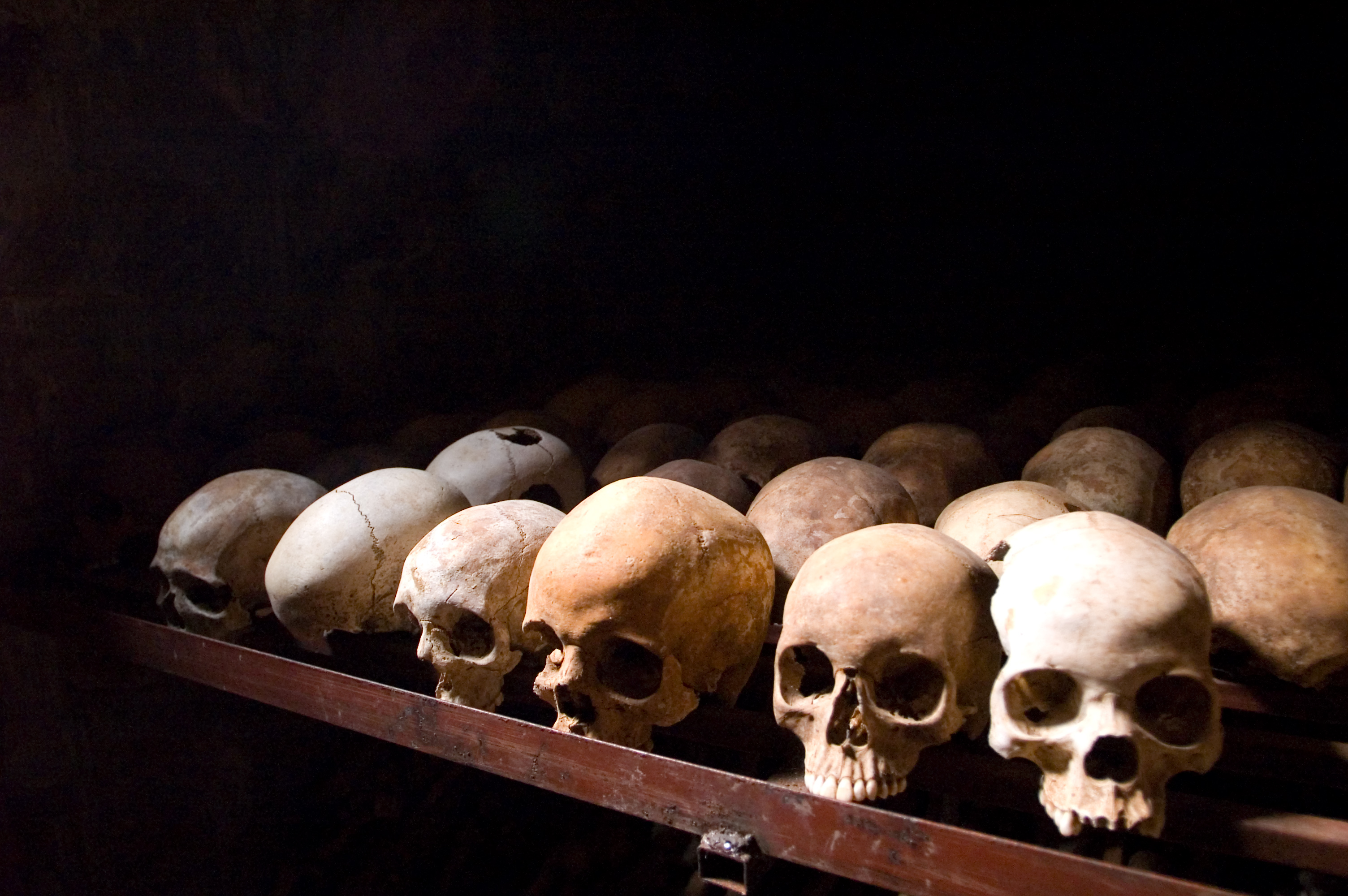
Rwandan genocide memorial in Nyamata (Fanny Schertzer)
A French court has found French-Cameroonian author Charles Onana guilty of denying the 1994 Rwandan genocide, convicting both the author and his publisher of “publicly contesting a crime against humanity”.
The court imposed a fine of €8,400 (£7,000) on Onana and €5,000 on Damien Serieyx, his publishing director from Éditions du Toucan. Additionally, the two were ordered to pay €11,000 in compensation to human rights organisations Survie and the International Federation for Human Rights (FIDH), which filed the lawsuit.
Rwanda’s Foreign Minister Olivier Nduhungirehe welcomed the ruling, describing it as a “landmark decision” on Twitter.
Prosecution lawyer Richard Gisagara called the verdict “a victory for justice that protects genocide victims and survivors,” noting that it was the first time in Europe that those denying the Rwandan genocide had been punished.
Patrick Baudoin, honorary president of FIDH and a plaintiff in the case, also praised the ruling. “Given the obviously negationist words of Mr. Onana, the judgment condemning him has a precise meaning: you can’t falsify history with impunity, and you can’t have contempt for the victims,” Baudoin stated. He labelled Onana’s writings as “monstrous” and said the court’s ruling set an essential precedent.
In his 2019 book, ‘Rwanda, the Truth About Operation Turquoise’, Onana questioned the existence of a planned genocide by Rwanda’s Hutu-led government. He described the notion of a Hutu conspiracy to commit genocide as “one of the biggest scams of the 20th century” and consistently placed the term “genocide” in quotation marks.
Onana claimed that killings during the conflict were not limited to Tutsis and alleged that both sides were involved in massacres. “Certainly, Tutsis were massacred, targeted, but they were not the only ones,” he wrote, asserting his work aimed to challenge what he referred to as “official history.”
The Paris court rejected these claims, ruling that Onana’s book had “trivialised” and “contested” the genocide in “an outrageous manner” in violation of France’s press law, which bans genocide denial.
The court underlined the “danger of the line of reasoning of Charles Onana and his publisher” given ongoing volatility in the region. It cited 19 specific passages that violated French law, including claims that a “hypothetical ‘genocide plan’ by the Hutus” was a “scam, a hoax, and a falsification of history.”
Over 100 days in 1994, an estimated 800,000 people, primarily from Rwanda’s Tutsi minority, were killed by ethnic Hutu extremists. Onana’s book focused on France’s controversial Operation Turquoise, a UN-authorised military intervention that critics argue failed to stop the genocide and instead allowed perpetrators to escape.
While President Emmanuel Macron acknowledged France’s “crushing responsibility” in the genocide during a 2021 speech in Kigali, Onana’s book defended France’s role, portraying Operation Turquoise as “immaculate and unworthy of suspicion.”
Onana and his publisher have appealed against the court’s decision, with Onana’s lawyer Emmanuel Pire arguing that the book was “the work of a political scientist based on 10 years of research.” He insisted that Onana did not deny the genocide or the targeting of Tutsis.

